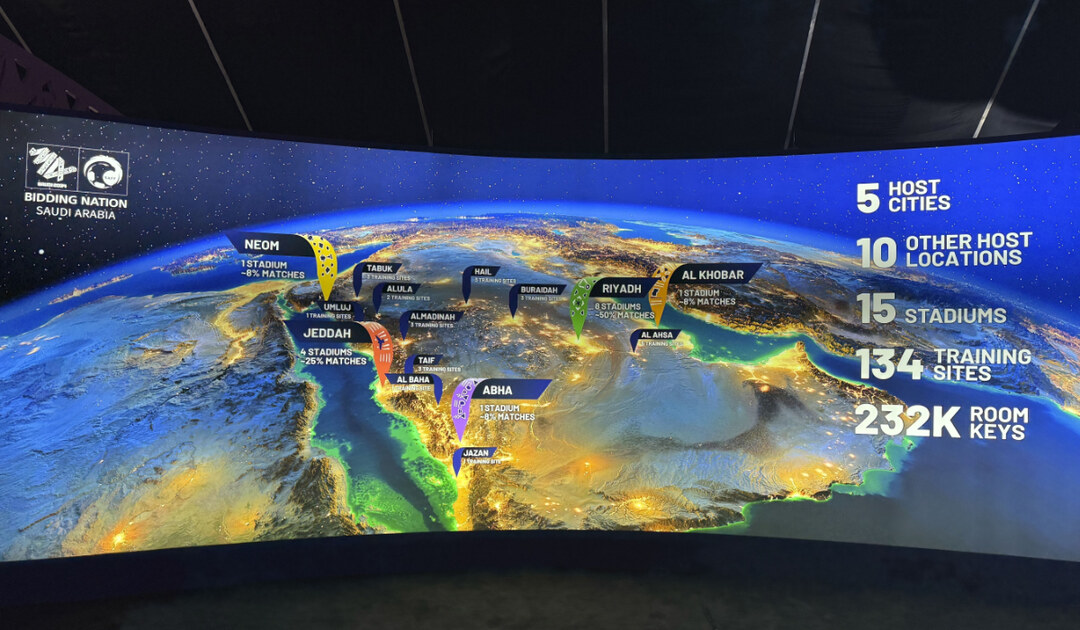With Saudi Arabia’s successful bid for the 2034 FIFA World Cup having been confirmed recently, the country’s enhanced transport links will serve as vital arteries, connecting visitors to the heart of the Kingdom and enabling them to explore its diverse offerings.
Strategic transportation networks are not merely a logistical advantage; they are a powerful tool for cultural exchange and an invitation to reimagine the country’s future.
The opening of the Riyadh Metro marks a significant moment for Saudi Arabia’s capital, not just as a modern transport network but as a reimagining of the city itself.
With its six lines threading through the urban fabric and connecting disparate districts, the metro is poised to transform how people move, live, interact, and imagine their shared future.
This change is deeply cultural, tied to the reawakening of social imagination — a process that connects individual lives to the larger structures of society. It invites people to rethink how cities shape their choices, opportunities, and connections.
During the height of the pandemic in 2021, in an online talk hosted by Central Saint Martins, I explored the concept of social imagination with experts Juha Leppanen from Demos Helsinki and Sir Geoff Mulgan CBE as a way to develop creative strategies to drive innovation and transformative change in an uncertain world.
By interrogating how societal norms and infrastructures influence daily life, social imagination allows communities to re-envision possibilities. The Riyadh Metro, far from being a mere transportation upgrade, embodies this potential on a grand scale.
It encourages the city’s inhabitants and visitors to see its streets and stations as more than functional spaces but as places where policy, design, and culture intersect to shape a vibrant society.
In Tokyo, for instance, Ueno Station’s collaboration with the Tokyo University of the Arts turned a simple transit hub into the Creative Hub Ueno, a cultural platform showcasing student artworks and creating a space for exchange.
Urban innovation thrives when infrastructure is designed with cultural and social goals in mind.
Such initiatives exemplify what Arup described in their Future of Stations report: the idea that “stations should diversify beyond mere transport spots,” evolving instead into drivers for social and cultural engagement.
For Riyadh, there is a real opportunity now to integrate similar innovations within its metro ecosystem. Collaborations with local universities could transform station environments into dynamic spaces for learning and interaction.
Stations could become microcosms of the Kingdom’s ambitious Vision 2030, displaying historical narratives, hosting live performances, or even serving as incubators for social innovation projects. This approach enriches the commuting experience and redefines the role of infrastructure within the cultural ecosystem.
Connectivity is at the heart of Riyadh Metro’s promise. By linking previously separated neighborhoods, it increases access to opportunities. Public transit becomes a shared space where diverse communities interact. The implications extend to policy as well.
Urban innovation thrives when infrastructure is designed with cultural and social goals in mind. The metro’s integration with Riyadh’s projected cultural budget and its expanding museum ecosystem could turn stations into living museums, offering curated exhibitions that reflect the city’s history and aspirations.
These spaces would echo the UNESCO-listed rail stations celebrated for their historical significance and architectural grandeur, linking Riyadh to a global narrative of how transit systems shape cultural identity.
Transit systems are becoming more than logistical enterprises; they are instruments of urban reinvention. Riyadh Metro’s success depends on how well it embraces this ethos, ensuring that stations and trains are seen as symbols of the city’s broader ambitions. The metro invites us to rethink Riyadh’s streets, public spaces, and the flow of daily life. It provides a framework for social integration, environmental sustainability, and economic innovation.
• Dr. Ghadah W. Alharthi is an international cultural adviser and an associate professor specializing in culture and innovation at Central Saint Martins, University of the Arts London. X: @GhadahWA













